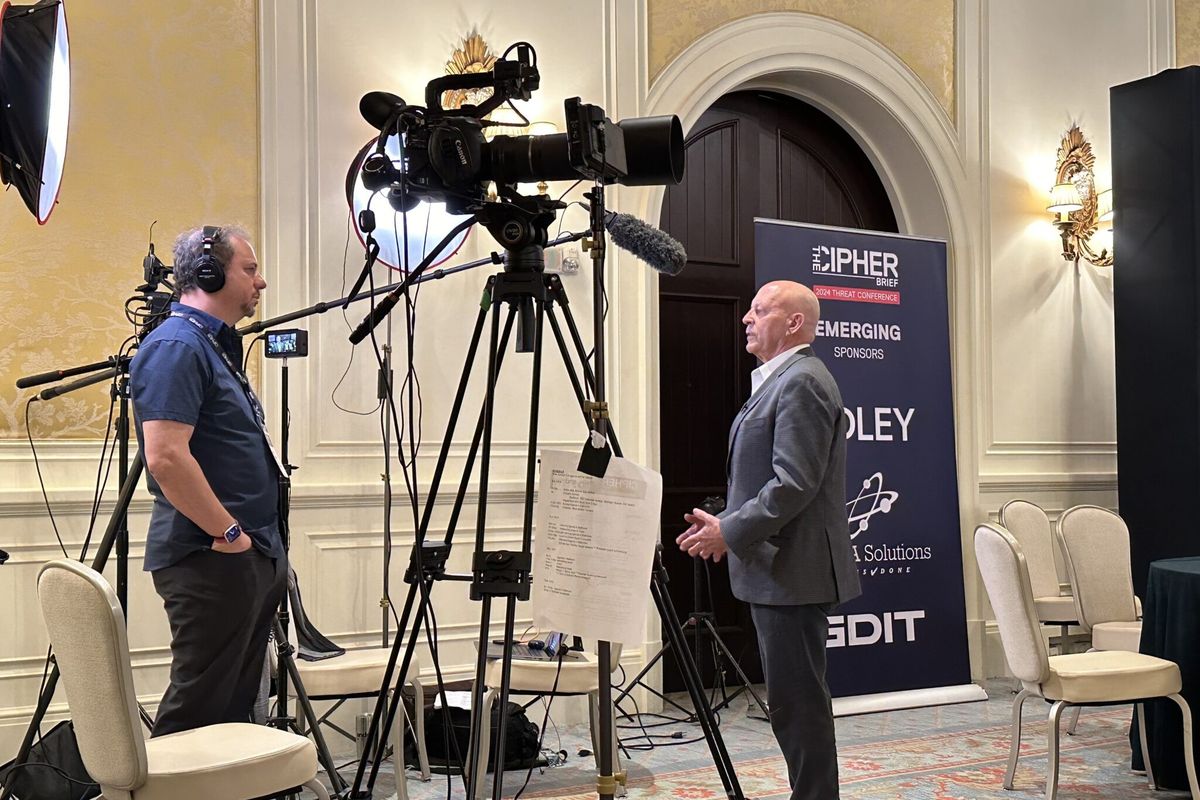Presidents and generals depend upon timely intelligence to shape their decisions in a world of ambiguity, hostile actors and disinformation. The savviest leaders in the private sector do the same.
Governments have broad intelligence authorities and powerful tools unavailable to the private sector, but they do not have a monopoly on the application of intelligence methodology and tradecraft. Your company can and should use systematic and legal intelligence collection and analysis to manage risk, identify opportunity and make better decisions.
What threats do I face? What are my rivals doing? Just who is this potential partner? When do I evacuate? Who is behind this cyberattack? Should I enter this market? The questions that intelligence can inform are limited only by the array of problems a chief executive officer confronts.
All CEOs have access to vast quantities of information, but relatively few demand actual intelligence: the systematic collection and analysis of information in response to specific requirements.
Without intelligence, companies are needlessly blind to looming threats, constantly surprised by foreseeable change, and wastefully failing to recognize opportunity that others seize. Why this gap? Failure to embrace intelligence in the private sector can be explained by three misconceptions of what intelligence is, and what it is not.
- Intelligence is not information: Information, by itself, is just data. We are flooded with information in a deluge, which clouds decision-making. Intelligence provides context, separating wheat from data chaff through a systematic process of collection, analysis and application to a decision.
- Intelligence is not espionage. Intelligence is often wrongly confused with spying. A professional private-sector intelligence program does not steal industrial secrets, wiretap competitors or surveil opponents. Rather, it operates within strict guidelines of governance, compliance and legality to enhance your ability to avoid the financial, legal and reputational problems which come with being blind to what is happening around you. Indeed, under the Foreign Corrupt Practices Act (FCPA), companies have a positive obligation to conduct due diligence to understand just what they are getting into.
- Intelligence is not costly. Governments spend billions on vast intelligence bureaucracies and sophisticated technical tools, but a private company doesn’t need to. Rather, a modest investment of corporate resources can generate enormous advantage. Raw intelligence is freely and widely available, often right at your fingertips. Just as nations use human intelligence (HUMINT), signals intelligence (SIGINT) and geospatial intelligence (GEOINT), companies can use networks, social media and satellite imagery to effectively and inexpensively answer strategic and tactical questions. A right-sized intelligence capability provides great return on investment in terms of money saved, risk reduced and opportunity identified.
An in-house corporate intelligence team may consist of a single analyst, or may be a large, multi-disciplinary unit. Many firms depend upon intelligence vendors, which deliver subscription-based products, produce custom reports, and conduct in-depth investigations.
Some vendors will embed analysts in the client firm; other have developed a “fractional analyst” model, which enables a firm to simply book analyst time. Either model can produce significant advantages of time, insight, and context, but there are pitfalls in outsourcing your intelligence requirements and relying upon vendors for your most sensitive and important work. A hybrid model of a lean in-house corporate team which draws upon external resources and capability as needed can maximize flexibility and cost efficiency.
The need for corporate intelligence shops is feeding a growing academic field, leavened by Labor Department statistics showing a rising demand for trained and seasoned intelligence analysts. A number of universities have built degree programs, including Mercyhurst University, which has undergraduate and graduate programs to prepare analysts for roles in the private sector and government.
Building your own pickle factory
Should you want to build your own intelligence capability, or to improve on what you already have, where should you start? The first step is to view intelligence as a distinct corporate discipline and follow a few key principles:
- Embrace the Intelligence Cycle. The “Intelligence Cycle” is the basic framework used in the intelligence community to describe the methodology which transforms information and data into intelligence which shapes better decisions. If you do nothing else, basic application of the Intelligence Cycle will help you better refine your intelligence needs, gaps and resources. The elements are simple, but each requires discipline and tradecraft.
- Requirements: Determining the question to be answered and the decision to be made is the first and most important part of the intelligence cycle. Time spent here greatly improves chances of a successful intelligence outcome.
- Collection: Collection produces “raw intelligence,” that is to say, information collected with your requirements in mind. What data do you already have, what more do you need and where can you find it? The quality of the data, the reliability of the sources, and the variety of inputs are all important factors to consider. Intelligence failure can often be attributed to over-reliance on a single source or to failure to understand source bias.
- Analysis: Analysis evaluates the raw intelligence you’ve collected in context of your requirements to produce “finished intelligence.” It is the process that transforms mere information into the intelligence, which can best inform your decisions. Good analysis screens out bias and tests assumptions. It compares disparate sources to corroborate and correlate the raw intelligence and, on occasion, to contradict prevailing views.
- Dissemination: Getting the finished intelligence to the right decision maker at the right time is critical. This is easier said than done.
- Feedback: The intelligence cycle is complete when the consumer provides feedback on intelligence received, poses follow up questions, and generates new requirements. Inevitably, any decision taken on basis of intelligence received will in turn generate new questions and requirements. Done well, feedback fosters an iterative, and virtuous, circle.
Using intelligence
Be an active consumer. I recently spoke with a business leader who had achieved a major success in recovering millions of dollars stolen by a partner in a foreign jurisdiction. He engaged a private intelligence firm to develop intelligence on the theft and locate the funds. The intelligence enabled an influence campaign and supported a legal process, which ultimately led to recovery of the funds.
The key takeaway for the executive was that the best intelligence goes to the best clients. He enabled success by working intimately with the intelligence team to shape and iterate requirements, to make decisions, and then track the impact of those decisions through the Intelligence Cycle.
Beware of your bias. During the Korean War, General Douglas MacArthur was convinced that the Chinese would not cross the Yalu River to engage United Nations forces advancing northwards. Despite mounting intelligence that Chinese “volunteers” had already entered Korea and, regardless of clear Chinese statements of intent to intervene, MacArthur clung to his belief until his troops were being driven southwards by the Chinese Peoples Volunteer Army.
MacArthur fell victim to a form of “confirmation bias,” seizing upon intelligence which confirmed his world view and rejecting that which didn’t. Intelligence which contradicts one’s views is the easiest to reject, but the most important to consider. In business, where there is built-in need to be optimistic about deals and partners, intelligence provides a critical check and balance.
Understand the Intelligence Industry
An ecosystem of intelligence firms has grown to support corporate needs. Some are founded by former intelligence professionals; others have evolved out of investigative firms, media conglomerates, or “big box” consultancies. Each brings advantage and disadvantage; there is no one size fits all. To evaluate and choose, ask your potential intelligence partner a few key questions:
- Where are you strong? Whether on an issue or geography, if an intelligence firm claims that they are good at everything, then walk away. Even the CIA and MI6 have coverage gaps; no firm can offer universally strong intelligence coverage across the array of locations and problems your firm faces.
- What are your sources? You want to understand how and where the firm collects its raw intelligence. They probably won’t tell you source names, but they should be able to describe the types of positions, nature of their relationships, and reporting track records. You should be confident that the access matches requirements.
- Who are your analysts? Many firms rely on ranks of young graduates to staff their analytic boiler rooms. While smart and sometimes well trained, they may also be inexperienced and have no direct understanding of the geography or issues on which they write. Find out who is writing the analysis, what experience they have, and what languages are covered. Determine as well whether you will have direct access to them.
- Do you subcontract? A number of larger firms simply act as intelligence general contractors, subcontracting your requirements to other local firms, generally not transparent to you. This may result in higher cost and higher risks.
- What are your standards? You should get clear answers to this question which reflects your ethical values and compliance culture. Beware of cowboys, winks and nods, and suggestions that there is a shortcut. You don’t have a get out of jail free card.
Bottom line
Intelligence is there for you, not just for three-letter agencies. It provides advantage in your decision-making, sometimes small, sometimes large. It provides threat warning, but also enables you to conduct business in tough environments and geographies where context is everything. Intelligence taps into the skills, reach and networks of your workforce.
In short, smart application of basic intelligence principles can enable your organization, however small or large, to understand and adapt to a complex world of dynamically evolving threat and constantly evolving opportunity.













